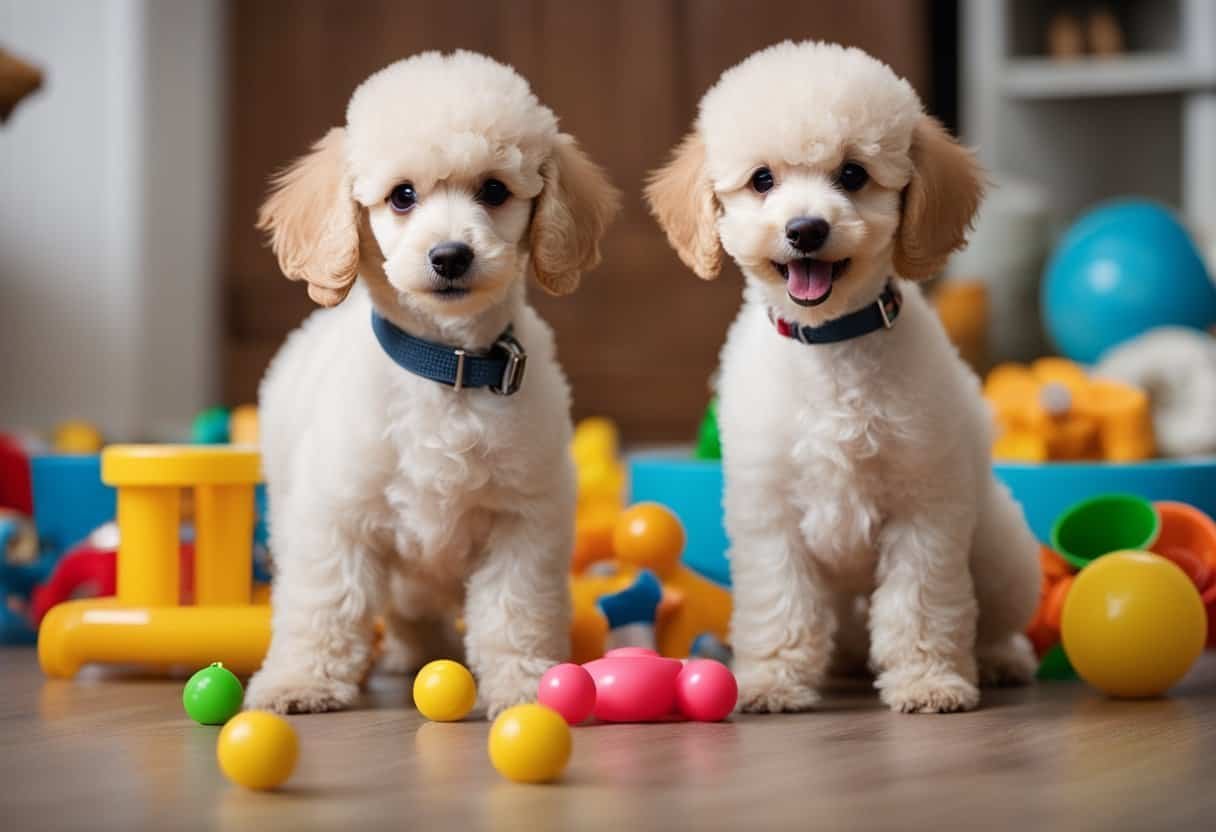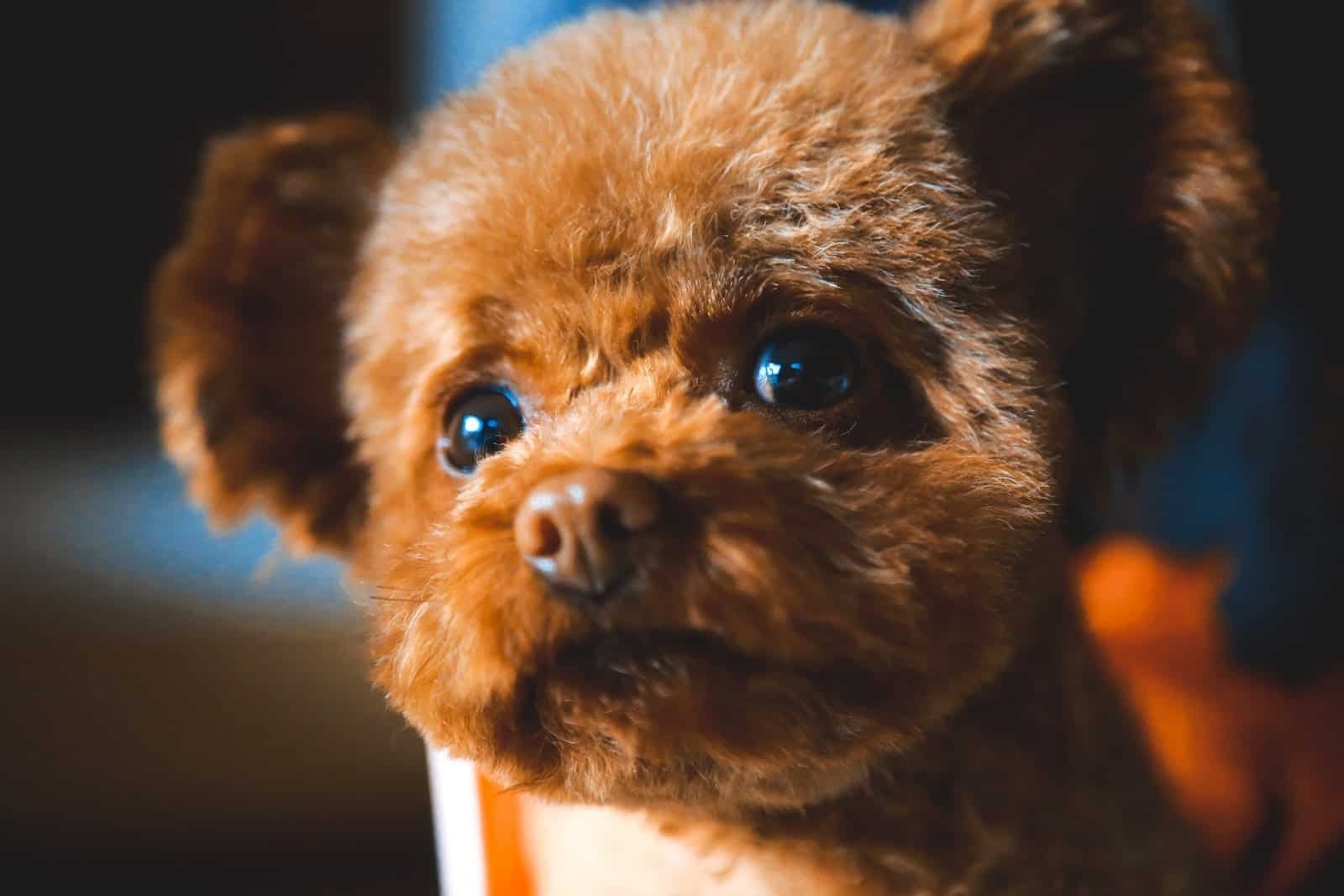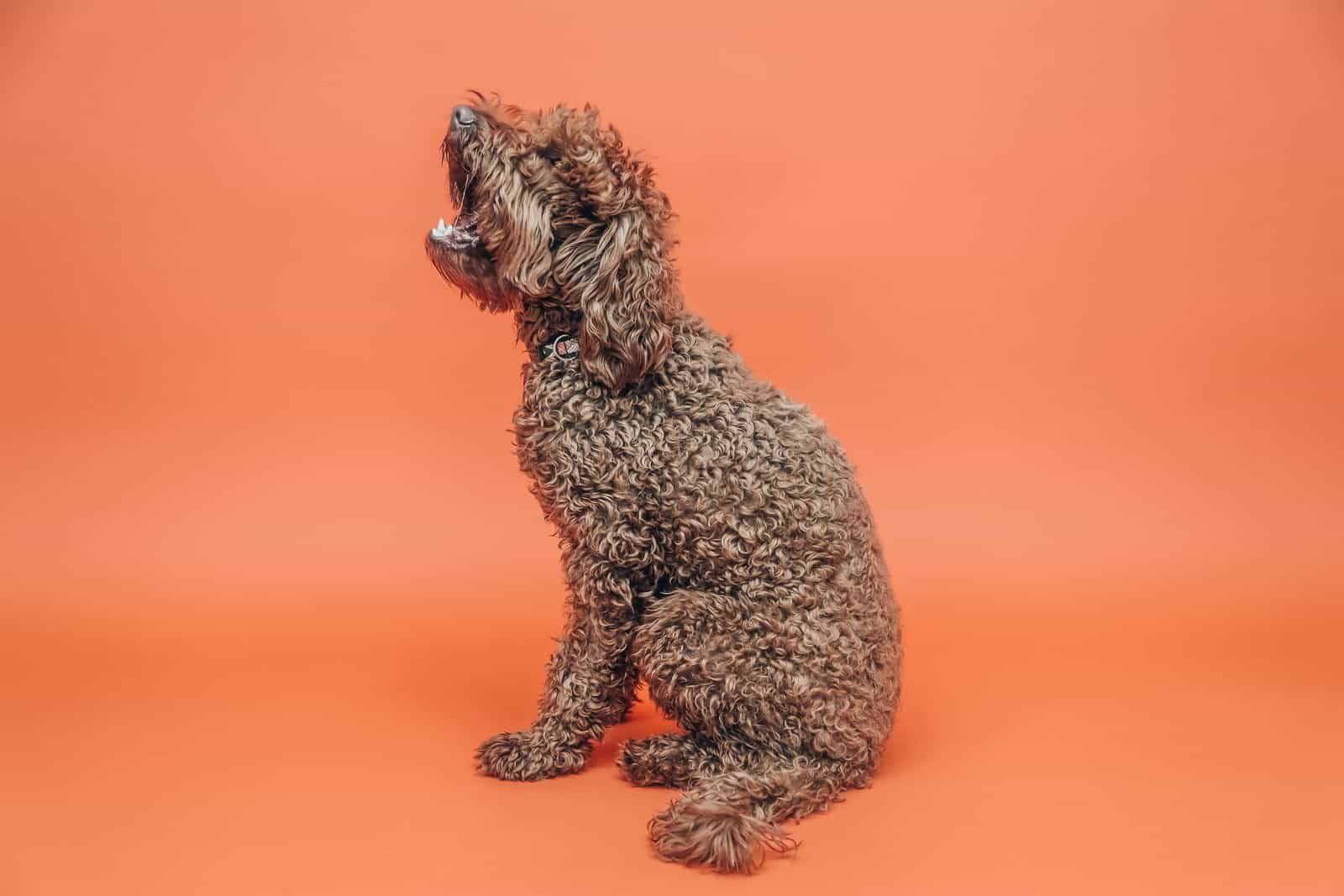
Poodle Personality: Poodles bond with their family quickly; yet, these bonds are strong and last a lifetime. Poodles grow into very loving pets, are known to pour out affection to their owners and other creatures they’ve been raised with.
Poodles are pictured as pampered pets but are more than what they’re known for. They are brilliant and active dogs that love to perform tasks. While you can find owners who want the stereotypical fancy hairstyle to show dogs, others love having an affectionate Poodle to snuggle at night.
Therapy dogs with their friendly disposition and intelligence. Poodles make great family pets because of their unique look, loving personality, and exceptional intelligence. From standard to miniature and toy sizes, there is sure to be a perfect poodle breed for any home. In this article, we will explore the physical characteristics, temperament and personality traits of these beloved dogs to help you determine if a poodle is right for you.
Overview of Poodle Breeds
Poodles come in 3 distinct sizes – toy, miniature and standard. Toy poodles are the smallest of the breeds and stand at 8-11 inches tall. They weigh 4-6 pounds and are perfect for small apartments or homes with limited space. Miniature poodles are slightly larger than toy poodles, standing between 11-15 inches tall and weighing 10-15 pounds. Standard poodles stand over 15 inches tall, weighing 40-70 pounds. All three breeds have curly coats that require regular brushing and grooming to keep them looking their best.
No matter which breed you choose, all poodles share some common personality traits. These dogs are intelligent and active, requiring daily exercise and mental stimulation to stay healthy and happy. They make great family dogs due to their loving and loyal nature, but can be quite energetic, so they may not be suitable for people with allergies or those who prefer a more relaxed lifestyle. As water retrievers by nature, they love playing in cold water but should never be forced, as it can lead to medical issues such as hip dysplasia or adrenal gland disorders if done too often.
The poodle is a popular breed of dog thanks to its unique look and loyal personality. With three different sizes available, e.g. toy, miniature and standard, there is sure to be a perfect fit for any home or lifestyle needs. Poodles require daily exercise, regular grooming, mental stimulation and lots of love in order to thrive as part of the family unit, making them an ideal option for those looking for an intelligent companion that will bring years of joy into their lives!
Physical Characteristics of Poodles
General poodle sizes: toy, miniature, and standard. The smallest of these is the toy poodle, which can reach a height of 10 inches and has a weight range of four to six pounds. Miniature poodles are slightly bigger, measuring 11 to 15 inches tall and weighing five to 10 pounds. Standard poodles are the largest, standing over 15 inches and weighing up to 70 pounds.
All Poodle sizes have a distinctively curly coat that requires regular brushing and grooming to keep it healthy. The coats of standard poodles are usually clipped into a variety of shapes, including lion, round or continental cuts. All Poodle sizes also have thick insulating undercoats that protect them from cold water, which makes them excellent swimmers!
Health wise, all sizes are susceptible to hip dysplasia and skin conditions like allergies or seborrhea. To reduce their risk of developing these issues, all Poodle owners should provide their dog with daily exercise, mental stimulation and proper nutrition.
With their intelligence, loyalty and affectionate nature, Poodles make great family pets for any home environment!
Standard Poodle Size & Appearance
Standard poodles are the largest of all the Poodle breeds, standing at over 15 inches tall and weighing up to 70 pounds. They have a distinctively curly coat which requires regular brushing and grooming, and are usually clipped into various shapes such as lion, round or continental cuts. Standard poodles also have thick insulating undercoats which makes them excellent swimmers and protects them from cold water.
As with any breed, standard poodles are prone to developing health issues such as hip dysplasia and skin conditions like allergies or seborrhea. To reduce the risk of these illnesses, they require daily exercise, mental stimulation and proper nutrition. Standard poodles make wonderful family pets because of their intelligence, loyalty and loving nature – making them a great addition to any home!
Standard poodles are known for their dignified and elegant demeanors, but they can also be playful and mischievous. They love to be the center of attention and thrive on human interaction, but can become easily bored if not given enough mental stimulation. As they are very trainable, standard poodles make excellent therapy dogs and good watchdogs. Overall, standard poodles are an intelligent and loyal breed that will bring joy to any family.
Miniature and Toy Poodle Size & Appearance
Miniature and toy poodles are two of the smaller poodle breeds. Miniature poodles stand at between 10-15 inches tall and weigh up to 15 pounds, while toy poodles reach up to 10 inches tall and 5-6 pounds in weight. Both types of Poodle have a thick, curly coat that may require daily brushing, trimming and regular grooming. They are also prone to developing skin conditions like allergies or seborrhea, which can be managed with proper nutrition and regular bathing.
Miniature and toy poodles are known for their intelligence and friendly nature, making them great family pets. They are very active dogs who will enjoy daily exercise, such as walks or playtime, as well as mental stimulation through activities such as puzzles or training games. These small dogs also make excellent water retrievers because of their thick insulating undercoats, allowing them to stay warm even when swimming in cold water. People with allergies may find it helpful to select a breed with less dander such as miniature or toy poodles – making these popular breeds an ideal choice for many households!
Common Coat Colors and Patterns
Poodles come in a variety of coat colors and patterns. The most commonly seen are solid colors in blacks, blues, silvers, whites, grays and apricots. Parti-colored poodles have two or more different colors in patches on their coat while phantoms have color combinations, such as black and tan or blue and cream. Tuxedo poodles have white markings on their chest and feet with a solid color elsewhere. Brindle, sable and merle are rarer coat patterns which can also be seen on some poodle breeds.
Regardless of the type or pattern of fur they possess, all poodles require regular grooming to keep their coats looking healthy and beautiful. This includes brushing at least once a week, trimming around their eyes, ears and feet and bathing every few months – depending on the breed’s activity level. With proper care and attention to detail, owners can ensure that their beloved pet looks its best!
Temperament & Personality Traits of Poodles
Poodles are an intelligent and loving breed of dog with a cheerful and sociable personality. Highly trainable, they’re also eager to please their owners and make for excellent family pets. They require daily exercise and mental stimulation to stay healthy and happy. Toy poodles tend to be more active than Standard or Miniature poodles, but all three sizes enjoy regular walks and playtime.
This breed is also known for its intelligence, making them great for learning tricks or even taking part in canine sports such as agility or obedience competitions. Poodles can adapt easily to different living situations, whether it’s living with a single person or an entire family. They do best in environments where they receive plenty of love, attention and enrichment activities.
Though they have a reputation for being high maintenance because of their need for frequent grooming, this isn’t always the case – especially if the coat is kept short with regular brushing and trims. Poodles are naturally hypoallergenic since they shed little fur, making them suitable companions for people with allergies. This popular breed is an excellent choice for those looking for a loving companion who can provide lots of fun and companionship!
Why Poodles Make Great Family Pets
The poodle is an excellent choice for a family pet. They are intelligent and loyal, making them great companions and easy to train. Poodles also have a high energy level, so they need regular exercise to stay healthy and happy. Their curly coat requires regular grooming and brushing to keep it in top condition. This breed is known for their sweet nature and can be very affectionate towards family members. They are hypoallergenic, so they make a good choice for people with allergies in the household.
Poodles are also incredibly versatile dogs, meaning that they can fit into any lifestyle easily; whether you live in an apartment or have a large home with a yard, they will adapt quickly and happily. The intelligence of this breed means they excel in all kinds of activities, like agility trials or obedience competitions.
Overall, poodles make great family pets as they are loving and loyal companions who will bring lots of joy into your life! With their intelligence, versatility and affectionate nature, these dogs are sure to be valued members of any family!
They are an intelligent breed for training
Poodles have high intelligence levels, known as the second smartest among 138 dog breeds. They were initially bred to work like humans, whether as a water retriever, herder, guardian, and most even working as service dogs. If you’re looking for a hard working dog that also makes a great companion, the Poodle is the perfect dog for you.
Because of this, it’s easy to train poodles while they are puppies. House training will be quick compared to training other breeds. They’ll also pick up many tricks as quickly, thanks to their intelligence and love for attention.
They pick up patterns and routines with such impressive ease and speed. As they appreciate learning opportunities, you can teach them how to pick up the newspaper and even bring your slippers in.
You can reward this intelligent dog breed with treats, playtime, and lots of praise with cuddles.
While poodles are such a pleasure to work with, watch out! They learn bad habits and behaviors as quickly as they do with fun tricks and basic commands. Their hunting instinct would have them more likely to respond to prey, like squirrels and birds, and you don’t want to run after your Poodle chasing after things.
You’ll have to be wary when reinforcing behaviors and use a firm voice rather than showing anger. Do not use severe punishments on Poodles, as they can develop empathetic and neurotic behavior when pushed too hard. Also, start training them while they are puppies to avoid behavioral issues in the long run.
Activity Level and Exercise Needs
Poodles are an active breed that requires plenty of daily exercise and mental stimulation. Depending on the size, toy poodles will require around 30 minutes a day, while standard poodles should get closer to 60 minutes. Longer walks and playtime are highly recommended for poodles to allow them to stay mentally stimulated and physically fit.
The breed is also well-known for its love of water activities such as swimming and retrieving, so incorporating these in your routine can be beneficial for both you and your pup. It’s important to ensure that poodles receive regular exercise as this helps keep their energy levels in check, prevents boredom, and helps reduce the risk of developing health issues such as hip dysplasia or skin conditions.
Regular exercise also helps promote healthy adrenal gland function, which is essential to overall good health. Poodle owners should make sure they have enough time to provide proper care for their pet by offering adequate amounts of activity each day.
They are eager to please the family
One reason Poodles are so trainable is that they have an overwhelming desire to please their family. They will probably repeat behaviors that garner positive responses, especially when showing off to their family. The Poodle’s eagerness to please has them more likely to behave well in most settings and learn quickly, as long as you train them well.
Affectionate Nature Towards People & Other Animals
Poodles are known for their friendly, affectionate nature towards people and other animals. They are very social creatures and will relish in the company of their family, whether it be human or canine. Poodles are quite gentle and make excellent family pets, as they have a sweet disposition and crave love and attention.
This breed is great with children and other pets, making them suitable for households with multiple species. It’s important to ensure that poodles receive proper socialization from an early age to help them become well-adjusted adults who know how to behave around both people and other animals. With consistent training and proper socialization, poodles can become loving, loyal companions who will stick by your side through thick and thin.
Expect a mild to moderate barking level
Poodles are alert breeds, thanks to their intelligence and hunting instincts. Combine those characteristics with their love for family, and you get a loyal Poodle who responds quickly to any suspicious strangers within their territory.
The Poodle is incredibly territorial and suspicious of any strange human or animal, knowing who doesn’t belong in their territory. Their increased sense of understanding allows them to feel in tune with their environment.
While not an overly aggressive breed, the Poodle is vigilant towards new people, situations, and surroundings, letting loved ones know if they sense anything new or unfamiliar. Think of them having the ‘all bark, no bite’ nature! When introducing your pet to new people, ease into it and be mindful when having friends and other relatives over.
A female Poodle is more protective than the male, as they have maternal instincts demonstrated towards her family. Because of that, they will bark to alert owners when they feel something’s wrong, making them excellent watchdogs.
If Poodles aren’t appropriately trained, they bark excessively. You will need to prepare Poodles well and stop them from barking with consistent and firm reinforcement.
Reward your Poodle for alerting you at the right time, and do a firm ‘NO’ if he barks randomly. This will help make sure your dog knows when it’s okay to bark.
They are sensitive
Your Poodle can pick up on your behavior and feelings with their emotional sensitivity. For example, if you’re in a bad mood, your dog senses this and will feel the same way curling up next to you. Or if you’re feeling happy, he’ll feel the same and want to spend his time playing!
While it’s adorable to watch them mimic how you feel, it can cause stress towards both of you. That’s why you need to set up a healthy home environment they can thrive in.
Poodles also get hypersensitive, being startled by touch and sound quickly. Watch out for symptoms of anxiety and make sure to be careful not to surprise them so quickly.
They are loving
Poodles bond with their owners quickly, with their bond strong and lasting a lifetime. They grow into loving pets that will pour all their affection to their owners and other pets they grew up with.
Poodles don’t only aim to please but love to be loved. They are an ideal pet if you want a loyal and constant companion always by your side.
Their adoration for their owners may come at a cost, though. Poodles will suffer from separation anxiety when left for long periods, which must be fixed with training.
There may be a few temperamental issues
Unfortunately, Poodles have the lousy rap of being a high-strung breed. However, that’s not the case! As long as you expose them to proper socialization with animals and humans, expect them to have fun with whoever they’re with.
The only temperamental issue you might encounter would be their shyness due to a lack of social skills and exposure to others. Their shyness results in your Poodle obsessively bonding with their owner, to the point they suffer from severe separation anxiety. Sometimes, over pampered dogs or those who were ignored during the critical socialization period.
Potential Behavioral Issues with Poodles
If not properly cared for, poodles may develop behavioral issues. These can include excessive barking, separation anxiety, food aggression, and destructive chewing. If these behaviors are left unaddressed, they can quickly become problematic and lead to more serious issues like biting or aggression. Poodles need training and socialization at a young age to behave well around people and animals. Regular exercise is important for poodles to burn excess energy and stimulate their minds.
Brushing their coats daily helps prevent skin conditions and matting. Ultimately, with consistent training and plenty of love, poodles make wonderful companions who will bring joy into your life.
Energy level, exercise, and mental stimulation needs
Poodles are always cheerful and happy, enjoying a ton of playtimes and being part of family activities.
When playing with your Poodle, you’ll want to incorporate games that work both their mind and body. If left bored and unstimulated, they become frustrated and take it out on the furniture.
To prevent boredom and frustration in Poodles, provide a stimulating environment for them to enjoy alone or with company. Give your Poodle many interactive toys, make time out of your day to exercise with him, and play agility games.
Poodles also do best when with other dogs to play with, though if you have no other pets, play dates are a great option. Also, since they were bred for cold water retrieval, they will LOVE swimming. Besides long walks, playing fetch, and mental stimulation games, take them to the pool to cool off.
Outside playtime, Poodles are gentle souls and are very relaxed. They don’t need a lot of exercise, but daily playtime and mental stimulation will keep them happy and cuddly.
Their activity levels change as they mature, though. They’ll start to calm down once they reach 18 months to 2 years old.
They are great with children and other animals
Poodles are extroverts who love being the center of attention, they will want an audience watching them perform tricks. However, you need to balance out their environment, as they thrive better inactive yet peaceful environments, with chaotic places causing stress and anxiety.
Plus, they love to play with children and other animals, being sociable dogs for people. As long as you properly socialize them as a puppy, they’ll love to play with those they trust. With that in mind, Poodles actually prefer their human family over dog company!
Miniature poodles are the best for families with young children because of their smaller size and playfulness. They don’t pose a risk for children, and children can easily handle their new pet without being too small, like a Toy Poodle. But make sure you teach your little ones to avoid being too active or noisy, as this can overwhelm the hypersensitive Poodle.
They are easily adaptable
The Poodle is highly adaptable. As long as they get enough love, attention, and exercise, all Poodle types can live in tiny apartments or enormous homes, feeling happy either way.
You can keep them at home and spend days cuddling and playing together. Or, you can travel outdoors together and enjoy all the walks together. Their ability to adapt makes them easy to train as well!
That said, it’s best to have Toy Poodles if you live in smaller apartments because of their small size. Standard Poodles do better with more space, preferably a house with a yard. They are large dogs that require a lot of room to move around.
Standard Poodles can still live in apartments and condominiums, though they need daily outdoor exercise.
What Kind of Poodle Should You Get?
Their temperaments differ slightly, and while the differences aren’t apparent in all Poodles, each type has specific characteristics. For instance, the Standard Poodle is energetic; yet, more reserved than the Miniature and Toy Poodle.
The Miniature Poodle would follow their owners around and are the most active, making them an excellent choice for children. Miniatures and Toys are a bit naughtier than Standard Poodles, who are calmer and more relaxed!
Toy Poodles are the smallest and are excellent companions, and require little exercise, provided they have toys and playtime. If you’re a family of adults, a couple, or living on your own, you’ll appreciate the adoration a Toy Poodle offers.
Your dog’s overall personality and temperament ultimately can be influenced by your personality, home environment, and the activities you do together. As long as you care for him well and meet all his needs, he will be happy and in excellent health.
It’s crucial to learn about the basic personality of Poodles before choosing to adopt or shop for one. That way, you know if the Poodle is perfect for you and what to prepare for.
Conclusion
Poodles possess an innate desire to please their owners and will probably repeat any behavior that garners a positive response. When a Poodle isn’t adequately trained, it may take to excessively barking also become a royal pain.
To prevent this from happening, use consistent, firm, positive training techniques and reinforcement to make sure the Poodle knows when it’s okay to bark. Never, ever use severe punishment on a Poodle because their empathetic and neurotic behavior could develop if you push the dog too hard.
A Poodles protective qualities include helping to sustain a strong level of security for its family. The female tends to be a little more protective than the male because her maternal instincts are demonstrated towards her human family.
The Poodle is an incredibly intelligent breed, and with that comes the need for physical and mental stimulation. Without proper exercise, it can become destructive and find other ways to entertain itself. Daily exercise is essential for this breed, both to keep them healthy and to prevent them from developing unwanted behaviors. A good workout regimen can consist of a walk, a game of fetch, or even a swim if you have access to cold water.
In addition to daily exercise, the Poodle requires regular brushing due to its curly coat. This will help to lessen shedding and the potential for skin conditions associated with their coat type. Due to their dense coats, they are more likely to have hip dysplasia, so make sure to take them for regular vet check-ups.
Overall, the Poodle is an incredibly popular breed for good reason. With its intelligence, friendliness, and adaptability, it’s hard not to love this pooch. Its loyal and devoted nature makes it the perfect family pet and companion. They also don’t trigger allergies like other breeds do, making them an ideal pick for people with allergies. With the right owner who can provide plenty of exercise and attention, a poodle will be your best friend for life!






